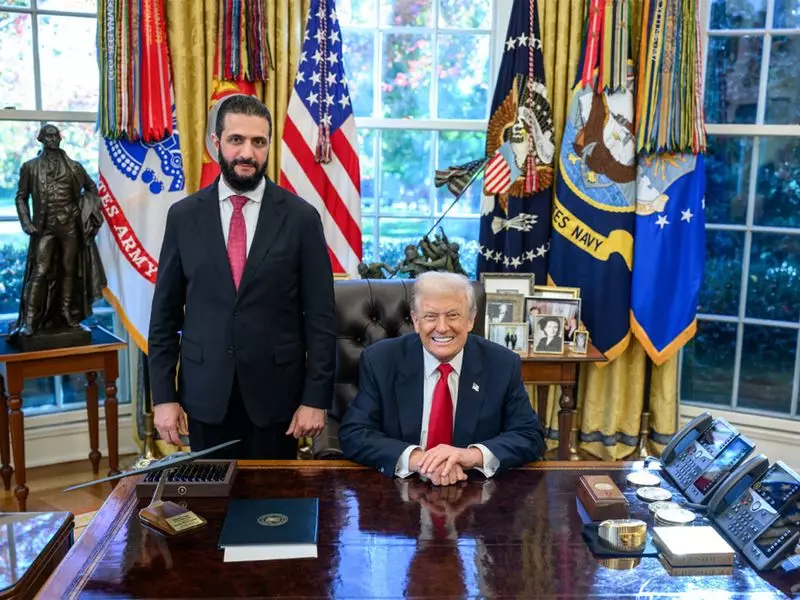
In a significant diplomatic move that has captured international attention, former US President Donald Trump hosted Syrian Vice President Farouk al-Sharaa at the White House, marking a notable shift in American foreign policy toward Syria. The high-level meeting, which took place amidst ongoing regional tensions, resulted in the easing of certain sanctions imposed under the controversial Caesar Act.
Historic White House Meeting Between Former Adversaries
The encounter between President Trump and Vice President al-Sharaa represents a dramatic departure from years of strained relations between Washington and Damascus. The meeting lasted approximately two hours and covered a wide range of bilateral issues, with particular focus on humanitarian concerns and regional stability. This marked the first time a senior Syrian official had been received at the White House in over a decade, signaling a potential thaw in relations that had been frozen since the outbreak of the Syrian conflict.
Observers noted the cordial atmosphere during the discussions, which multiple sources described as "productive" and "forward-looking." The Syrian delegation included several economic advisors and diplomatic officials, indicating the comprehensive nature of the talks. President Trump emphasized the importance of direct dialogue between nations, regardless of past differences, while Vice President al-Sharaa expressed Syria's willingness to engage in constructive diplomacy.
Caesar Act Sanctions: Partial Easing and Its Implications
Central to the discussions was the Caesar Syria Civilian Protection Act, which had imposed severe economic sanctions on Syria since its implementation in 2020. The Trump administration announced selective easing of these sanctions, specifically targeting areas related to humanitarian aid and reconstruction efforts. This decision follows mounting international pressure regarding the sanctions' impact on ordinary Syrian citizens.
The modified sanctions regime will now permit certain types of transactions related to medical supplies, food security, and infrastructure rebuilding. However, the core sanctions targeting Syrian government entities and individuals associated with human rights violations remain firmly in place. Treasury Department officials clarified that the adjustments are designed to alleviate civilian suffering while maintaining pressure on the Assad government.
Economic analysts suggest that the partial sanctions relief could open doors for limited international investment in Syria's reconstruction, particularly from regional partners who have been cautiously exploring renewed engagement with Damascus. The changes specifically allow for transactions related to electricity generation, water distribution systems, and healthcare facilities that were destroyed during the conflict.
Regional Reactions and Future Prospects
The diplomatic breakthrough has generated mixed reactions across the Middle East. Regional powers including Iran, Turkey, and Saudi Arabia have been closely monitoring the developments, with each country assessing the potential impact on their strategic interests in Syria. European allies have expressed cautious optimism about the humanitarian aspects while emphasizing the need for continued accountability for human rights violations.
The meeting represents a significant diplomatic victory for the Syrian government, which has been seeking to break its international isolation through gradual normalization with Arab and Western nations. However, human rights organizations have voiced concerns about the timing of the sanctions easing, arguing that it might reduce leverage for achieving political reforms and justice for war crimes.
Looking ahead, both American and Syrian officials have indicated that this meeting could pave the way for further diplomatic engagement. The discussions touched upon potential confidence-building measures, including prisoner exchanges and cooperation in combating terrorist organizations that remain active in parts of Syria. The success of these initial steps will likely determine the pace and scope of future normalization efforts.
As the situation continues to evolve, international observers will be watching closely to see whether this unexpected diplomatic opening leads to substantive changes in the Syrian conflict or represents merely a tactical adjustment by both parties. The coming months will be crucial in determining whether this high-profile meeting marks the beginning of a genuine reconciliation process or remains an isolated incident in the complex tapestry of Middle Eastern politics.





